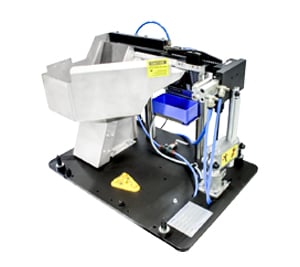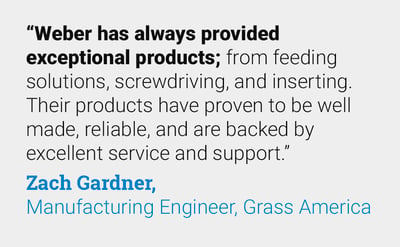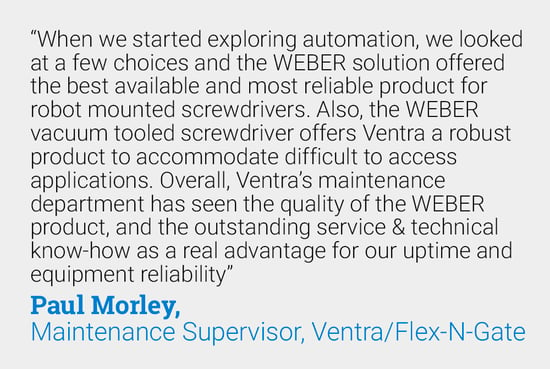2 min read
How the Modular Construction Industry Leverages Active Depth Sensing for Reliable Fastening
By: Carey Dupuy Nov 12, 2024 9:00:00 AM
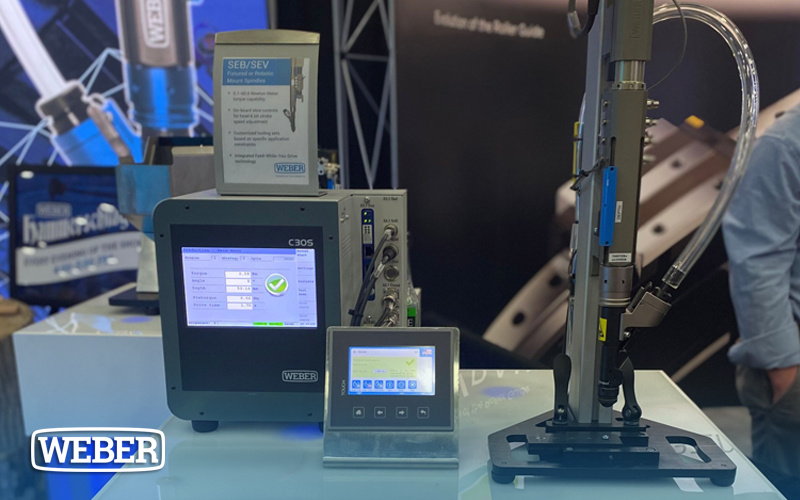
Reliable, consistent, repeatable screwdriving into wood is not all that simple if you're in a high-volume prefab or modular construction manufacturing setting. Typical screwdrivers used in these industries are heavy, slow, prone to operator error, and don't provide feedback on the success of their operations.
Wood also presents its own set of problems. It's not usually completely straight, and it is riddled with knots and other natural variations in hardness and water content. However, WEBER screwdriving systems are engineered with the challenges of wood in mind.
Active Depth
 WEBER screwdriving systems with Active Depth monitors the angle, torque, and depth of each driving operation. The combination of these process parameters indicates when a screw operation does not meet the required quality by either torquing too high early in the driving process or never reaching the required torque at the specified depth.
WEBER screwdriving systems with Active Depth monitors the angle, torque, and depth of each driving operation. The combination of these process parameters indicates when a screw operation does not meet the required quality by either torquing too high early in the driving process or never reaching the required torque at the specified depth.
Shop floor data is captured by a C30S controller directly from the screwdriving equipment without operator involvement. This information can be used to improve processes and overall equipment effectiveness and allow you to investigate repeatability and scrap issues.
WEBER benefits
WEBER's pneumatic handheld systems have an adjustable clutch that can easily accommodate a variety of wood densities, giving you precise, fatigue-free production even at the highest volumes. The system can also compensate for poor alignment and tight tolerances. These lightweight handhelds are versatile and have industry-leading speeds that will increase your production rates.
Window and door applications require precise work even at high assembly volumes, so WEBER's handheld systems feature a quick-release system for fast, tool-less bit changes when working on components with fittings and hardware.
Feed While You Drive
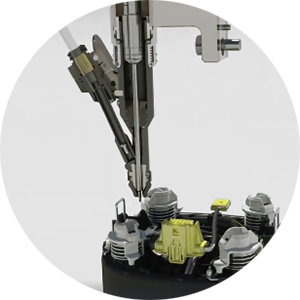 And a WEBER screwdriver paired with a screw feeder eliminates the need to pick and place each screw and leaves little to no room for human error. This "feed while you drive" technology incorporates a screw feed arm directly into the feed head, which holds the next fastener in place, ready to be driven. A screw feeder eliminates the time waiting for the next fastener to travel from the feed system, significantly increasing production capability and improving both speed and cycle time.
And a WEBER screwdriver paired with a screw feeder eliminates the need to pick and place each screw and leaves little to no room for human error. This "feed while you drive" technology incorporates a screw feed arm directly into the feed head, which holds the next fastener in place, ready to be driven. A screw feeder eliminates the time waiting for the next fastener to travel from the feed system, significantly increasing production capability and improving both speed and cycle time.
According to Mordor Intelligence, there is a growing shortage of affordable homes in the U.S. today. That fact, along with the added benefits of offsite construction such as reduced construction time, less waste, and a higher quality product created in a controlled environment, means there is a lot of optimism in the industry for the growth of offsite construction. If you are part of the off-site construction business and want your company to keep up with the demand in a safer, ergonomic, more dependable way, call WEBER today.


